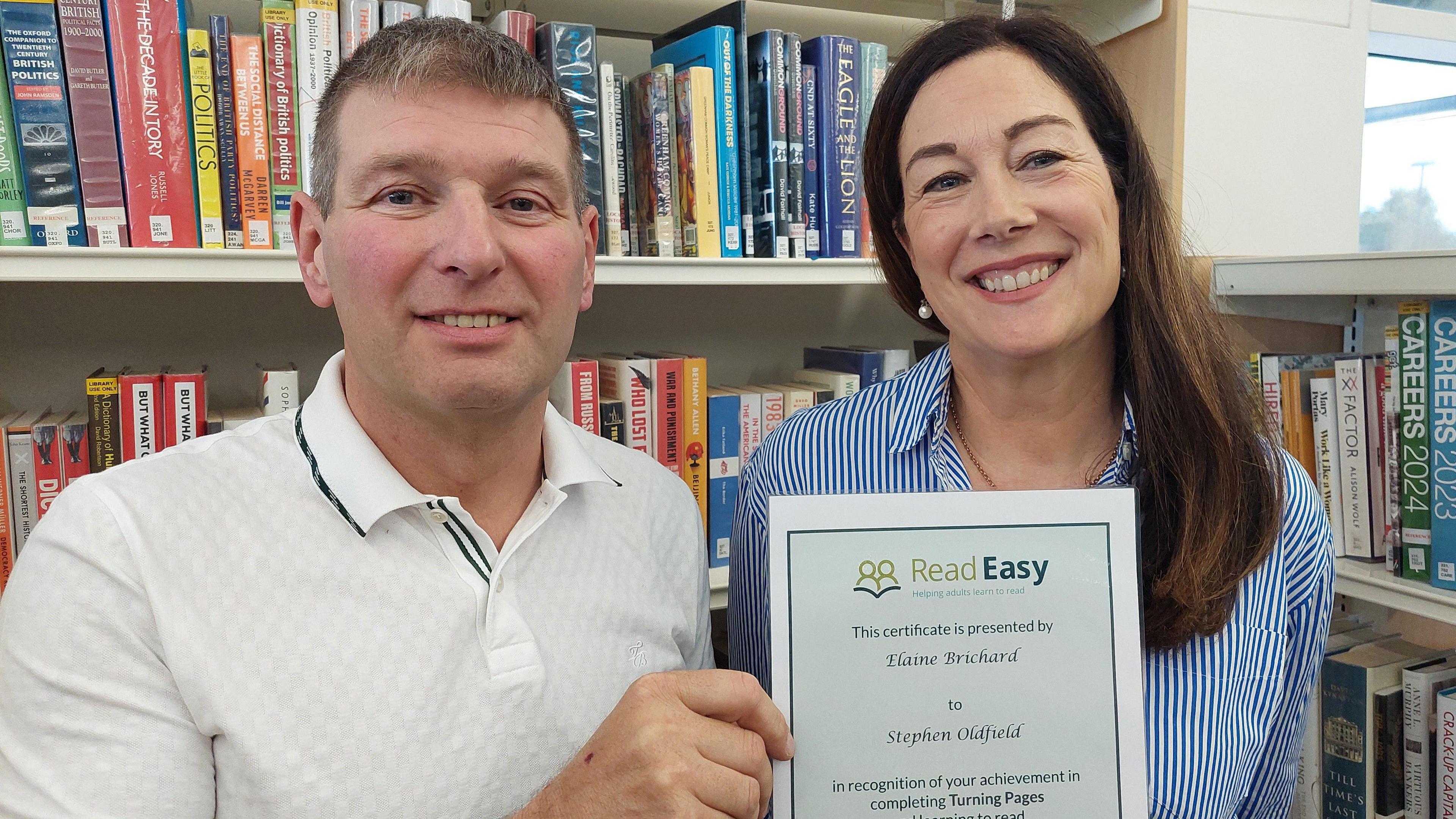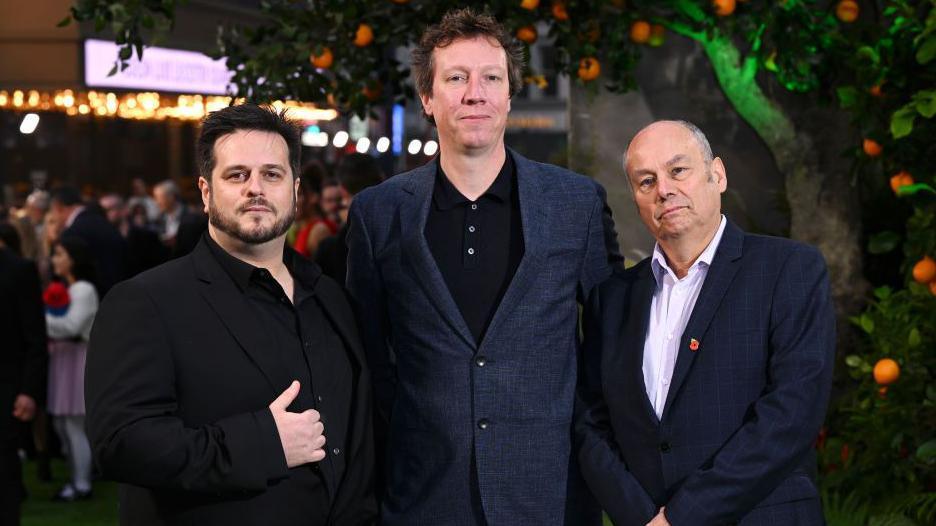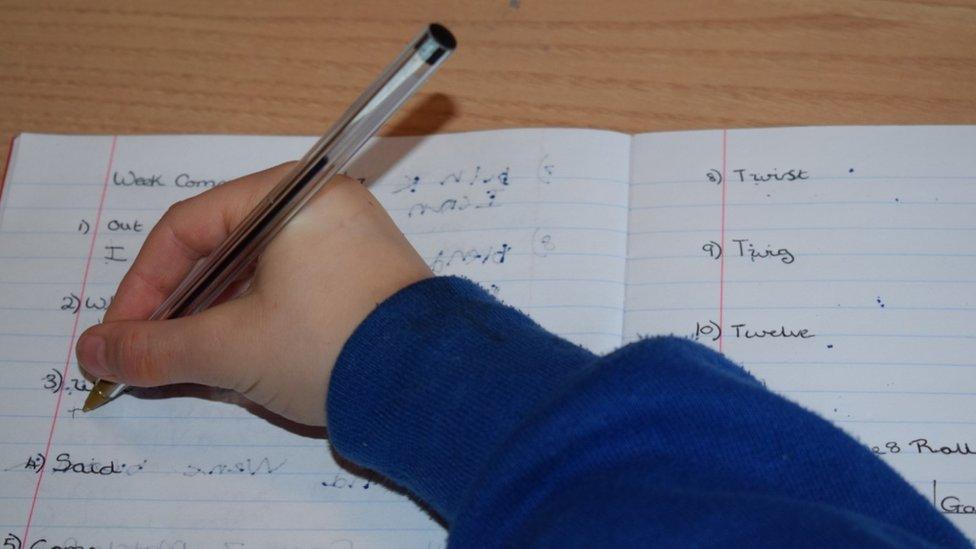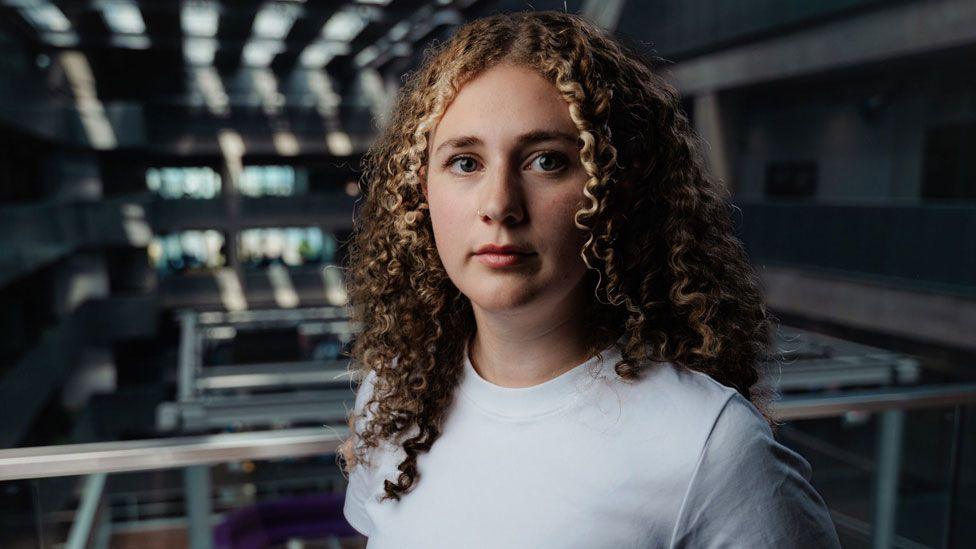Dyslexia: 'I bluffed my way through life'

Stephen Oldfield was helped by Read Easy coach Jessica English
- Published
A man who left school illiterate in the 1980s due to undiagnosed dyslexia has said learning to read in his 50s was "one of the best things I've ever done".
Stephen Oldfield, from Newbury, said he had "bluffed his way through life", spending nine years in the Army before becoming a delivery driver for the past 27 years.
Until two years ago, he said no-one but his wife and two children knew he could not read or write.
But a road accident changed all that.
"...while driving for work - a car hit me - and I had to do all the paperwork, it completely threw me," he told BBC Radio Berkshire.
"At the time, it was around Christmas, and [television presenter] Jay Blades was on TV with his documentary about being dyslexic and my wife decided, behind my back, she would put me forward to Read Easy UK."
The volunteer-led group helps adults learn to read and Mr Oldfield was paired with coach Jessica from the charity's West Berkshire programme.
Over the space of a year, they would meet on a weekly basis to work on his literacy skills.
Mr Oldfield admitted he was "very nervous" confronting the issue after so many years, but added: "It's one of the best things I've ever done. I wish I'd done it sooner, I'd recommend it to anybody with dyslexia, there's help out there."
Mr Oldfield found school hard and said in the 1980s "dyslexia at that time was about but nobody knew much about it".
He explained words would jump about on the page and blur before his eyes when he tried to read.
'There's help out there'
After the school alerted his parents, he was seen by two different opticians.
Mr Oldfield said the first one told his mum and dad: "There's nothing wrong with his eyes, he's just lazy."
The second said he had strained his eyes so much he was in danger of losing his sight, he said, adding: "From then, I never really caught up."
In the Army, he said he did not tell anyone he was dyslexic for fear of being treated as the "class clown".
"To be honest, I must have bluffed my way through life. If you can't read, it is one of the biggest struggles.
"Nobody knew until two years ago that I was dyslexic.
"Having an accident was not a very good thing but a positive has come out of it because it caused my wife to put me forward to learn to read."
Mr Oldfield urged anyone struggling to read: "Don't be afraid to come forward and say that you've got dyslexia, it's not a disease and there's thousands of people with it.
"At the time, I felt I was the only person with dyslexia, you have that mindset that there's nobody else, it's only me.
"There's help out there. If I can do it, anybody can. It doesn't matter how old you are."
Get in touch
Do you have a story BBC Berkshire should cover?
You can follow BBC Berkshire on Facebook, external, X, external, or Instagram, external.
See also
- Published17 November 2024

- Published25 October 2019

- Published26 August 2024
